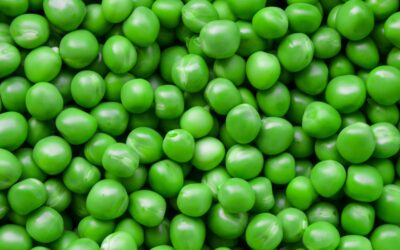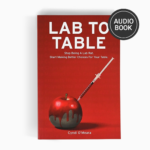I’m a nutritionist, traveller and explorer, constantly seeking more information on food and nutrition. That’s why I was honoured to spend 4 educational, inspirational days at Wise Traditions 2017 – a conference celebrating the love of natural foods, farming and health – deep in farm country in Minneapolis, USA.
The calibre of speakers was high: Sally Fallon Morrell, author of the Nourishing Traditions blog and co-founder of Weston Price Foundation, which promotes the benefits of nutrient-dense foods through research and education; Gut and Psychology Syndrome (GAPS) founder Dr Natasha Campbell-McBride; Dr Ronda L Nelson, holistic nutritionist and herbalist behind Restoration Health, and fitness coaching and education guru Ben Greenfield plus many others.
As you’d expect, the food at the conference was from local, organic, biodynamic, holistic farmers and permaculture advocates, meaning the meat was free to roam and the vegetables were not sprayed with chemicals – principles we employ at the Changing Habits Farm. It was also the first time I’ve been to a health expo where there were no additives, preservatives or flavourings to be found among the stalls offering up cottage industry drinks, food and personal care products. ‘Farm to consumer’ was a strong theme here – think ethically raised animals, chemical free plant based foods and raw dairy products.
The Take-Home Messages
And it was over such wonderful produce that I was lucky enough to chat with Reginaldo Haslett-Marroquin from the Main Street Project, an organisation dedicated to changing how food is produced by using farming systems mindful of their impact on the entire ecosystem. His ethos is based on ‘give a man a fish and he’ll eat for a day; teach him how to fish and he’ll eat forever’. His lecture on poultry farming for regenerative and ecological agriculture is well worth a watch. They consider three things before they implement an idea at one of their poultry farms – is it ecological? Is it economical? Is it socially viable? Their methods are influenced by indigenous practices, complemented by worthy technological advances – think solar panels to warm the coops, and chicken grain that helps improve the soil.
Also at the dinner table that night was Dr Stephanie Seneff, Senior Researcher at MIT. She is passionate about publicising the dangers of glyphosate. She spoke at the conference the following day and I sat in the talk with my jaw to the floor. Dr Seneff believes that glyphosate can disrupt gut bacteria and lead to an increase in pathogens, can damage red blood cells, resulting in anaemia and can contribute to leaky gut, among other things. I interviewed her for my documentary, What’s With Wheat and listening to her lecture has made me more determined to pursue my quest to get my local council to stop using glyphosate on our playgrounds, verges and sports grounds. Listen to one of Dr Seneff’s podcasts on the dangers of glyphosate here.
Dr Zoe Harcombe was the award dinner speaker. She is an author, researcher and advocate for real food, and the name behind The Harcombe Diet, which explains ‘the power of not counting calories, but making the calories you eat count’. She spoke about governmental dietary guidelines and her doctoral thesis on the subject. Her conclusion? That there is no scientific evidence for the dietary guidelines of low fat high carb. She is a powerhouse of knowledge and an amazing technical speaker on the science behind food, nutrition and diet. One of her mantras is ‘Food should come from fields, not factories’.
The final day I spent at a masterclass in nutrition run by Dr Chris Masterjohn, a health and fitness researcher, educator and consultant. The premise of the talk was the biochemistry of metabolism and an overview of the fat and water-soluble vitamins and minerals required for this process. His belief, which was echoed by many of the other speakers at the conference, is that we are a well fed but sadly undernourished society. Our health/sickness system does not look for nutrient deficiencies but instead treats people with medications. Dr Masterjohn believes many diseases are being over-treated with drugs and under-treated with nutrition.
A Day to Reflect
On my last day in Minneapolis, I put on my hiking shoes, threw my backpack over my shoulders and walked uptown, midtown and downtown, around lakes, along the Mississippi river and through amazing parklands. As I walked, I discovered out of the way organic cafes, book exchange boxes, community chess boards and much more.
As I walked, I pondered whether I would ever have enough knowledge to understand the complexity of our amazing body, the environment we live in and the food our body needs in order to be healthy and energetic. I doubt it! But what I do know is, the more I learn, the more I don’t know but the more I trust in the wisdom of eons past, of culture, of tradition, and of the innate ability and intelligence of our body to know what to do to be healthy and energetic. For this, of course, it needs the right ingredients – food, sunlight, connection, sleep, movement, love, clean water and whatever else we don’t yet know that it needs!
I’m in awe of science but I’m even more in awe of the magnificence of the workings of this planet and the human body. Eat real food, get out into the sunshine, move, sleep, love, connect and drink clean water. These are the fundamentals of not only your health but that of the planet. They’re not called Wise Traditions for nothing.
Happy Changing Habits
Cyndi O’Meara








Hi Cyndi, what a delight to read your synopsis of the Wise Traditions conference 2017! Thank you for being so inspirational in openly saying you are always continuing to learn about food and what our body needs to thrive. I echo you!
I am already planning to attend next year’s Wise Traditions conference, and in the meantime am looking forward to spending 2 days on a course taught by Sally Fallon Morrell in January 2018 in Victoria, BC, Canada. She too is a great inspiration to me.